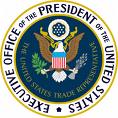 Yesterday the Washington International Trade Association (WITA) held a panel on “21st Century Issues” in the Trans Pacific Partnership negotiations, which featured speakers on e-commerce/telecommunications, SOEs, regulatory coherence, and intellectual property.
Yesterday the Washington International Trade Association (WITA) held a panel on “21st Century Issues” in the Trans Pacific Partnership negotiations, which featured speakers on e-commerce/telecommunications, SOEs, regulatory coherence, and intellectual property.
According to an account of the discussion on ustr.gov, IP negotiator Probir Mehta “stressed that the U.S. is pushing for binding commitments from TPP partners so that they also achieve a balance in their copyright systems in providing exceptions and limitations for scholarship, criticism, news reporting, research and other legitimate purposes — as in the United States.” During the Q&A, Mehta “reminded listeners that consistency with U.S. law means that the United States also wants to see reflected the wealth of exceptions and limitations that provide great benefits to American consumers, scholars, writers, artists, and others.”
The leaked U.S. proposal regarding limitations and exceptions includes the following: “each Party shall seek to achieve an appropriate balance in providing limitations or exceptions, including those for the digital environment, giving due consideration to legitimate purposes such as, but no limited to, criticism, comment, news reporting, teaching, scholarship and research.” It also subjects uses to the three step test, which has led to criticism from civil society groups.
Last summer, U.S. officials meeting with PIJIP professors Peter Jaszi, Michael Carroll, and Sean Flynn said that the proposed language was not meant to restrict nations’ use of limitations and exceptions, but to oblige them to act positively to “seek to achieve balance.” The officials’ interpretation of the U.S. proposal touched on a number of topics, such as the proposal’s compliance with existing treaties on copyright, including the Berne Convention and the WIPO internet treaties. Their position is described in this subsequent letter from the professors to USTR, which also suggests clarifications to the position that “would help the U.S. proposal appear more sympathetic to public interest concerns.”




